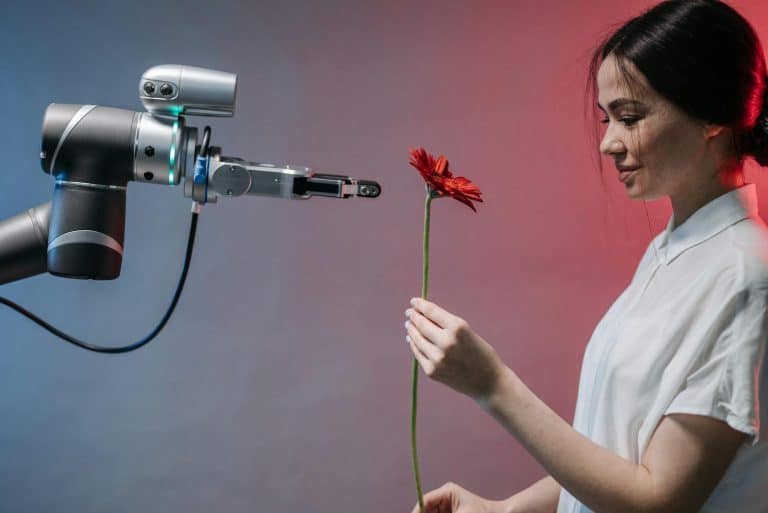When I first heard about people forming romantic relationships with AI, I thought it was just another weird internet trend that would fade faster than your Snapchat streak. But here we are, and the numbers don’t lie. Apparently, a decent chunk of Americans are genuinely open to—or already engaged in—romantic relationships with AI. Yes, you read that right. We’ve officially entered the timeline where your competition for a date might just be a chatbot.
The Numbers Are Wild (And Kind of Sad)
Let’s dive into the data, because it’s equal parts fascinating and concerning. A recent survey from Vantage Point Counseling Services polled over 1,000 U.S. adults and discovered that approximately 28% of them have had at least one intimate or romantic relationship with AI. That’s nearly a third of respondents. To put that in perspective, that’s more people than those who can parallel park on the first try.
But wait, it gets better (or worse, depending on how you look at it). Beyond romance, a whopping 53% of U.S. adults have had some kind of relationship with AI systems—whether as a friend, colleague, or confidant. More than half! At this rate, AI companions might become as common as therapy appointments and oat milk lattes.
When it comes to younger adults, specifically those under 40, about 7% are open to the idea of a romantic partnership with AI. An additional 10% are down for having an AI friend, while 1% already claim to have one. And here’s the kicker: 25% of young adults believe AI could potentially replace real-life romantic relationships altogether. Let that sink in. A quarter of Gen Z and Millennials think your next significant other might come with a subscription fee.
Why Are People Doing This?
Before we judge too harshly (okay, maybe just a little), let’s try to understand why people are turning to AI for love and companionship. According to Alexandra Cromer, a licensed professional counselor with Thriveworks, the main culprits are loneliness, isolation, and low self-esteem. Since the pandemic, loneliness has skyrocketed, and there are no signs of it slowing down. AI offers something that feels safe, accessible, and—crucially—rejection-free.
Think about it: AI doesn’t ghost you, judge your life choices, or forget your birthday. It’s always available, always attentive, and programmed to respond in ways that make you feel heard. For people struggling with social anxiety or past relationship trauma, that can feel incredibly appealing. Michael Salas, owner of Vantage Point Counseling, points out that even people in fulfilling human relationships with AI are experimenting with AI intimacy—not necessarily because something’s missing, but because it feels “safe, low-stakes, and intriguing.”
I get it. Dating apps are exhausting, small talk is painful, and sometimes you just want someone (or something) to listen without offering unsolicited advice. But here’s where things get messy.
Is AI Romance Cheating?
This is where the debate gets spicy. According to the survey, adults in relationships were actually more likely to pursue intimacy with AI. Even more surprising? Half of all adults over 60 said AI intimacy isn’t cheating. Meanwhile, younger adults (18 to 29) were most likely to say it absolutely is cheating and unacceptable in a relationship.
So who’s right? Well, it depends on who you ask. Salas makes a solid point: “Cheating isn’t just about physical contact because it also includes secrecy, deception, and breaking agreements. For some couples, an AI relationship feels harmless. For others, it crosses a line. The important part is having honest conversations about where those boundaries are.”
Translation: If you’re sneaking off to have deep emotional chats with ChatGPT at 2 a.m. without telling your partner, you might want to ask yourself some hard questions. Communication is key—even when your side piece is a large language model.
The Platforms People Are Falling For
Not all AI is created equal, apparently. The survey found that ChatGPT was the top-rated platform that humans feel most connected to, followed by Character.ai, Alexa, Siri, and Gemini. ChatGPT leading the pack makes sense—it’s conversational, adaptable, and frankly, way better at remembering details than most humans. Character.ai, on the other hand, lets users create and interact with custom AI personalities, which is basically Build-A-Bear but for romantic companions. Alexa and Siri are the dark horses here, though I’m not sure how romantic you can get with a voice assistant that mostly just sets timers and plays Spotify.
The Risks of AI Intimacy
Before you go downloading Character.ai and naming your AI boyfriend Chad, let’s talk about the risks. Salas warns that AI intimacy can become addictive, reinforce avoidance of conflict, and set unrealistic expectations for human partners. These patterns can make it harder to form or sustain healthy human connections.
Cromer echoes this concern, adding that AI bots can falsify information or provide incorrect responses. Unlike a human partner who will call you out when you’re being ridiculous, AI is programmed to be agreeable. It won’t challenge you, push you to grow, or help you navigate real-world conflicts. In other words, it’s the ultimate yes-man—and that’s not always a good thing.
What This Means for the Future
We’re officially in uncharted territory. As Salas puts it, “These findings show that AI is becoming a source of comfort, novelty, and even intimacy. That raises new questions for couples, therapists, and society about fidelity, loneliness, and what we really seek in connection.”
Relationships with AI aren’t going anywhere. As technology continues to develop, relationships with AI will become more sophisticated, more emotionally responsive, and more human-like. We’re already seeing these relationships with AI advancements in large language models and conversational AI. The question isn’t whether relationships with AI will become more common—it’s how we’ll navigate the ethical, emotional, and societal implications of them.
So, do people believe in romantic relationships with AI? The survey says yes. Whether that’s a sign of innovation or a cry for help is still up for debate. Either way, welcome to the future—where your romantic rival might just be a chatbot with better listening skills than you.
As technology blurs the line between human and machine, emotional relationships with AI are becoming more accepted than ever. What once seemed like science fiction is quickly turning into a new form of modern love.







